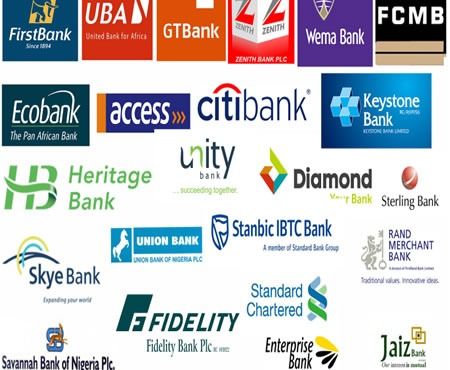Business
Nigerians express concern over increasing inflation and its impact on multiple bank charges

Nigerians, who have already turned to extreme means to lessen the impact of harsh socioeconomic circumstances, are growing more concerned about what they perceive to be numerous bank fees, particularly stamp duty, during a period when inflation has reduced the value of the naira.
On Wednesday of the penultimate week, President Bola Tinubu acknowledged that the choice of his administration to eliminate gasoline subsidies and converge the foreign exchange rate is the reason why Nigerians are currently suffering through difficult times.
Nonetheless, a plethora of bank clients who spoke with Nigerian Tribune claimed that the rate at which their funds are subtracted from each transaction at the bank is getting intolerable and steadily eating away at disposable earnings in households.
The most common fees, which are sometimes charged in multiples, include commissions, value-added tax, telco fees, stamp duty, transfer fees, and others.
Mr. Damian Nnanyerugo, a bank customer, bemoaned the most absurd aspect of these deductions, stating that the federal, state, and municipal governments share a portion of the money through the Electronic Money Transfer Levy (EMTL).
Checks do, in fact, show that of the N1.1 trillion in revenue split by the Federation Account Allocation Committee (FAAC) in August 2023, N14.102 billion came from the Electronic Money Transfer Levy (EMTL).
The federation’s October account disbursement was further reinforced by rises in value-added tax and electronic money transfer fees to N16 billion and N324 billion, respectively, of 45% and 14% m/m, respectively.
Through the Electronic Money Transfer Levy, the Federal Government expects to generate N483.73 billion in revenue over the course of three years from the surge in electronic payments.
The Budget Office of the Federation developed this estimate, which was disclosed in its Fiscal Strategy Paper and Medium Term Expenditure Framework for 2023–2025.
In order to capitalise on the expansion of electronic funds transfers in the country, the Stamp Duty Act was revised with the introduction of the EMTL in the Finance Act 2020.
When money is deposited electronically into any bank or financial institution for any kind of account with a balance of N10,000 or more, there is a one-time, N50 fee.
The three levels of government split the money received from the EMTL.
The Ministry of Finance, Budget, and National Planning’s budget office states that the country hopes to earn at least N137.03 billion in 2023, N157.59 billion in 2024, and N189.11 billion from EMTL.
Sufyan Adam, another Bank customer, vented his annoyance on social media.
“Dear Central Bank of Nigeria @cenbank, what is this N50 stamp duty levy on every credit of N10,000 & above, notwithstanding the severe economic & the so many tough economic policies by you?
Do you wish to drag us down into more suffering and impoverishment? Adam said, “This anti-people policy needs to end.
Yinka Ogunnubi, a different Bank client, held a different viewpoint. While Nigeria (with total volumes of 3.4 billion transactions in 2021) charges a flat price of N50.00 regardless of value, Ghana (with total volumes of 77 million transactions in 2020) charges 1.5 percent, he acknowledged that Nigeria offers a free threshold of N10,000 every transaction.
If Nigeria followed Ghana’s lead, just think of the tax money that would result from it. If the government took a more proactive approach to “expanding the tax net,” like Ghana did, can you imagine what our tax to GDP would be? Can you imagine what Ghanaians would give up to replace Nigeria’s EMT Levy with their own eLevy?
“While I don’t think the Nigerian government will follow Ghana’s lead, I wouldn’t be shocked if they were closely monitoring implementation to see how it worked out. One thing is certain: many governments will attempt to tax the digital economy in order to earn additional funds, according to Ogunnubi.
The main payment infrastructure in Nigeria, the Nigerian Inter-Bank Settlement System (NIBSS), recently lowered the processing price for transactions made on its network.
The transaction processing charge for NIBSS Instant Payment (NIP) transactions was lowered by NIBSS. On July 1, 2023, the price for immediate transactions was reduced from ₦5 to ₦3.75.
According to sources, commercial banks requested a decrease in transaction costs, which is why there has been a drop. However, the sources added that the reduction will not have an impact on the transaction fees that banks charge their clients.
In an effort to promote stability and financial inclusion, the CBN forced banks to lower their fees in December 2019. Some banks were hesitant because they were worried about their profit margins. They faced fines for their hesitation.
Charles Odogwu, the NowNow growth head, was reported by TechCable as saying that banks may “stimulate increased transaction volume” by lowering transaction fees. More income prospects for banks could result from this, he continued, “especially if they have a significant market share in electronic payment services.”
Conversely, he stated that banks’ profit margins might be impacted by lowering transaction costs. According to Odogwu, “banks may see a decline in transaction fee revenue if the price reduction is significant, which could affect their overall profitability.”
In the meantime, stamp duties of N 50 must be paid by all deposit banks and financial institutions on any qualified transaction exceeding N 10,000. Salary accounts and transactions across accounts owned by the same bank customer are exempt.
Recall that the 2020 Finance Act amended the Stamp Duties Act’s section 89(3) to exclude electronic transfers from the stamp duty’s purview and to impose an electronic money transfer levy on any kind of account that receives an electronic transfer of funds deposited in a financial institution. For any transfer of N 10,000 or more, a charge of N50 is required.
